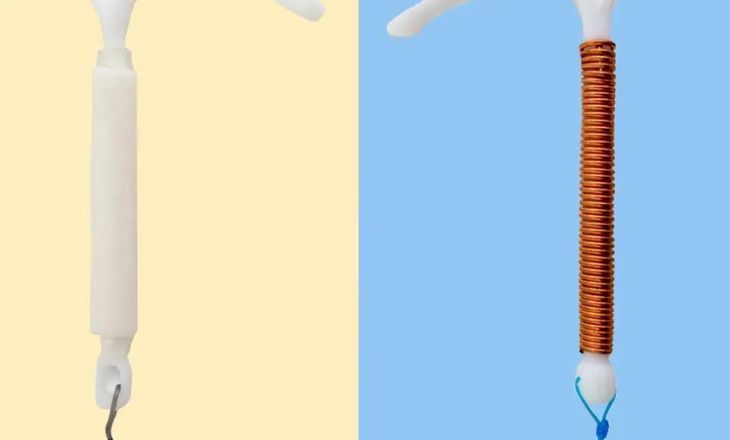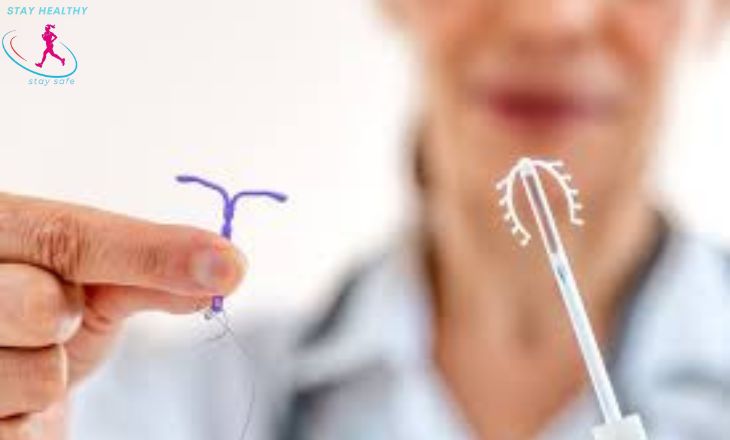Are you tired of remembering to take a pill every day or worried about the side effects of hormonal birth control? Well, fret no more because there’s a revolutionary option that can liberate you from these concerns: the birth control implant intrauterine device.
But here’s the twist – there are two different types: hormonal and nonhormonal. That’s right, ladies, it’s time to dive into the fascinating world of IUDs and discover which one is the best fit for your contraception needs.

Strap in, because we’re about to embark on an exciting journey into the realm of birth control implant intrauterine device options!
Types of birth control implant intrauterine device
When it comes to birth control, the IUD is a popular option because it is effective and convenient.
Types of IUD
There are two main types: hormonal and non-hormonal. Choosing the right one can be overwhelming.
Hormonal IUDs
Hormonal IUDs release a small amount of progestin into the uterus, which thickens cervical mucus and thins the uterine lining. This prevents pregnancy by stopping sperm movement and making it hard for fertilized eggs to attach to the uterus.
Non-hormonal IUDs
Non-hormonal IUDs create an environment that is not good for sperm and also the non-hormonal IUD is made of copper, which is toxic to sperm. It doesn’t affect ovulation or hormones, but it prevents fertilization.

What you feel after treating IUD
When the birth control implant intrauterine device is inserted, you may feel some discomfort or cramping for a few minutes. After getting the IUD, watch for any unusual symptoms or changes in your body.
Some people may have irregular bleeding at first, but it usually goes away after a few months. Everyone’s experience with an birth control implant intrauterine device is different, so it’s important to keep in touch with your healthcare provider if you have any concerns.
Can anyone get an birth control implant intrauterine device?
IUDs are a good way to prevent pregnancy, but they may not work for everyone. Talk to a doctor to see if an IUD is right for you. Things like medical conditions, past infections, or certain cancers can affect if you can use an IUD.

But for most people who want long-lasting birth control, an IUD is a safe and easy choice. There are different types of birth control implant intrauterine devices with different hormones, so you can pick what’s best for you. It’s important to talk openly with your doctor to decide if an birth control implant intrauterine device is right for your reproductive health.
What should I expect when getting an IUD?
Mostly, It results in what is your expectation. Getting an birth control implant intrauterine device, like Sly And birth control, is a quick and simple process. First, you will meet with your healthcare provider to talk about your medical history and birth control options.
Overall, the birth control implant intrauterine device provides effective contraception without needing daily pills or injections. Knowing what to expect during and after the insertion process can help ease worries and ensure you make informed decisions.

Merits of IUDs
1.The birth control implant intrauterine device are one of the best reversible contraceptives, with less than 1% chance of failure. This is key for women who want to manage their reproductive health and avoid any surprises.
2.The birth control implant intrauterine device, compared to abortion’s possible harms and emotional distress, are a good step forward. 3.IUDs as a birth control choice, in short, have clear pros. They’re handy, they last a long time, and are very effective.
4.This empowers women to wisely decide their reproductive health without drastic steps.
5.It lets women plan their families how they want.
Demerits of IUDs
1.There’s a chance the birth control implant device may slip out from the uterus. Sometimes this happens spontaneously and unnoticed, risking unexpected pregnancy.
2. The birth control implant intrauterine device might cause some women to have heavier, longer, and more painful periods. These changes may interrupt daily routines.
3.IUDs might cause more cramps and pain in the pelvic area, particularly during periods. Can be hard to cope with.
4.The birth control implant intrauterine device can slightly increase the risk of PID – a serious infection in the reproductive system. If not treated, PID can lead to fertility issues.
5.Taking out an birth control implant intrauterine device might be tricky sometimes and needs a health professional’s skills. That’s important to think about if you may wish to get pregnant later.

Which IUD should You choose?
When choosing a birth control implant intrauterine device, you can choose between a hormonal or non-hormonal option.
Recommended Hormonal birth control implant intrauterine device
Hormonal birth control implant intrauterine device, like Yaz and Junel, contain synthetic hormones that thicken cervical mucus, prevent sperm from reaching the egg, and thin the lining of the uterus. This not only prevents pregnancy but can also make periods lighter or stop them completely. If you have heavy or painful periods, a hormonal birth control implant intrauterine device can be a great choice.
Recommended non-Hormonal birth control implant intrauterine device
The non-hormonal birth control implant intrauterine device, like ParaGard, don’t have hormones. They are made with copper wire and work by releasing ions that make it difficult for sperm to move and fertilize an egg. Non-hormonal IUDs don’t directly affect your menstrual cycle like hormonal ones do, but some people may experience heavier periods.

Conclusion
While choosing the birth control implant intrauterine device There’s stuff to consider. The hormonal kind can make periods lighter and lessen cramp pain. It’s also a great pregnancy stopper. Then there’s the non-hormonal type – it’s long-lasting, effective, and no effect on hormones.
Chat with your doctor about your needs before picking. So, hormonal or non-hormonal birth control implant intrauterine device? It’s based on your unique needs. Each prevents pregnancy effectively, but their methods and effects vary.
FAQs
Is it better to get a hormonal or non-hormonal IUD?
Copper and hormonal methods nearly guarantee results. Copper birth control implant intrauterine device achieve about 99.2% effectiveness. Hormonal IUDs win at 99.8%. The odds of pregnancy? Less than 1%.
Is hormonal or non-hormonal birth control better?
Not many methods are hormonal birth control at stopping pregnancy. The pill, ring, patch, shot, birth control implant intrauterine device, and implant ,they all use hormones. Some use estrogen and progestin. Progestin is like progesterone, but man-made.
What are the disadvantages of a non hormonal IUD?
The initial few months might see some spotting between cycles (this is normal). Some pain and uneasiness when it’s inserted can occur. For some, periods may be heavier and last longer. Menstruation might bring more abdominal discomfort while using birth control implant intrauterine device.
Are hormonal IUDs bad for you?
Hormone-based IUDs (such as Mirena, Kyleena, Liletta, and Skyla) might lead to certain reactions. Hormonal birth control implant intrauterine device have the potential to alleviate cramps and premenstrual syndrome, often resulting in significantly lighter periods
Which birth control has the fewest side effects?
Every type of birth control has some side effects, and the birth control implant intrauterine device is no exception. However, it’s known for having minimal side effects. This is why women across various age groups are favoring it.
